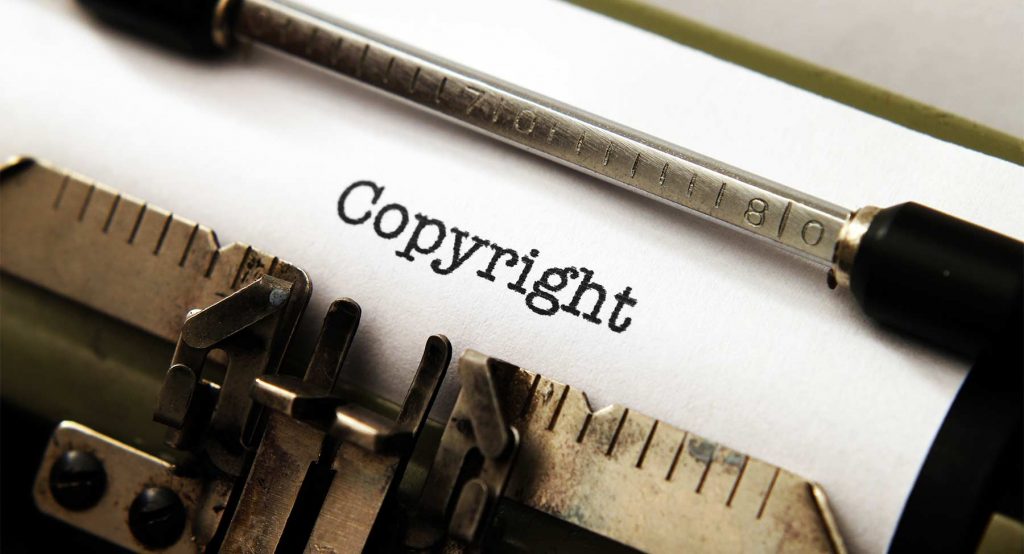DCMA Takedown Notices Help Photographers Protect Copyrighted Pictures
Almost everyone who uses the Internet has heard of the Digital Millennium Copyright Act, but not everyone truly understands how it impacts them – especially copyright holders or content creators like photographers. At least one Senator wants to make changes to the Act to make it even easier for creative artists to invoke copyright protections.
The Digital Millennium Copyright Act, or more commonly known as the DMCA, was enacted in 1998 as a way to protect copyright holders while simultaneously enabling people to use copyrighted material under the fair use rule of US Copyright Law. The DMCA implements treaties of the World Intellectual Property Organization (WIPO).
The DMCA protects the copyrights of photographers and others who upload work to websites such as Pinterest and Flickr. It enables photographers to hold web hosts responsible
for copyright infringement under certain circumstances. Under the DMCA, however, there is a safe harbor provision that protects website hosts when certain conditions exist. If they do not follow these requisites, the copyright holder may seek legal remedies from the Internet platform when someone violates their copyright.
How Does the DMCA Protect Photographers?
In today’s digital age, most photographers use online platforms to share their work. The DMCA simplifies the way photographers can notify websites of copyright violations and compel them to remove the offending content. This is also known as a DMCA takedown notice.
Let’s say, for example, you see that an online magazine has used one of your photographs alongside an article without a license or your permission. The magazine generates revenue from the article with several ad streams, and the photo has been linked to several other websites.
By utilizing the DMCA takedown notice provision of the law, you can have the images removed from that online magazine. This affects the websites that link to your photograph as well. Those sites will have blank images and links that lead to nowhere.
Another way that the DMCA helps photographers is by ensuring that providers honor the takedown notices. If websites fail to take appropriate action, the photographer can file a copyright infringement claim against the provider and other parties that violated their copyright.
When Can Website Hosts Receive Safe Harbor Protection From Copyright Claims?
Website hosts might be exempt from copyright liability under the DMCA liability when:
- The providers did not know about the infringement or had no reason to believe there was copyright infringement.
- The providers take down the infringing material once they receive notice.
- They do not directly benefit financially from the subject materials.
- They have an agent for copyright claims.
- They have a set of procedures in place regarding takedown requests.
- They implement their policy against repeat infringers.
If a provider meets these requirements, they might be exempt from copyright infringement liability under the law’s Safe Harbor provision.
Photographers can enforce their rights and take advantage of the DMCA by paying attention to where their pictures are. It is important to ask that they notify the website provider and ask that they be taken down when copyright violations occur. It is one of the best ways to ensure your work retains its value and integrity and put the website host on notice of copyright
infringement.
US Senate Explores DMCA Changes
With rapidly-evolving technologies, the chair of the US Senate Judiciary Committee’s Intellectual Property Panel, Thom Tillis, stated his intention to seek updates to copyright law, including the DMCA.
Tillis expressed his desire to streamline the takedown process to make it easier for photographers and creative artists to stop ongoing copyright infringement. Under his proposal, a copyright holder would be required to ask a provider to take down material only once before
responsibility is imposed on that provider. The single takedown notice would require the provider to monitor for additional acts of copyright infringement, not the photographer.
Senator Tillis also would like the law to address the differences between small and large stakeholders. Smaller copyright holders might not have the resources to send repeated takedown notices. The Senator would like congress to consider adjusting the law to replace takedown notices with “stay down” notices. The stay down notices would articulate the imposition on providers to take down future copyright violations that
occur from the same material.
If congress implements these changes, it might become easier for photographers and other creative artists to ensure their copyrights are violated with less frequency. The changes
can also make it easier to pursue damages against internet sites that do not meet their obligations to monitor for ongoing copyright infringement.
Contact Our Copyright Lawyers Today for a Free Consultation
If the unauthorized use of your photos has led to copyright infringement or you need help protecting your copyright, call our lawyers at Sanders Law Group today. Our lawyers represent photographers and creative artists worldwide and help ensure they receive compensation for
copyright violations.
Call 888-348-3090 today to find out if you are entitled to damages for copyright infringement.



